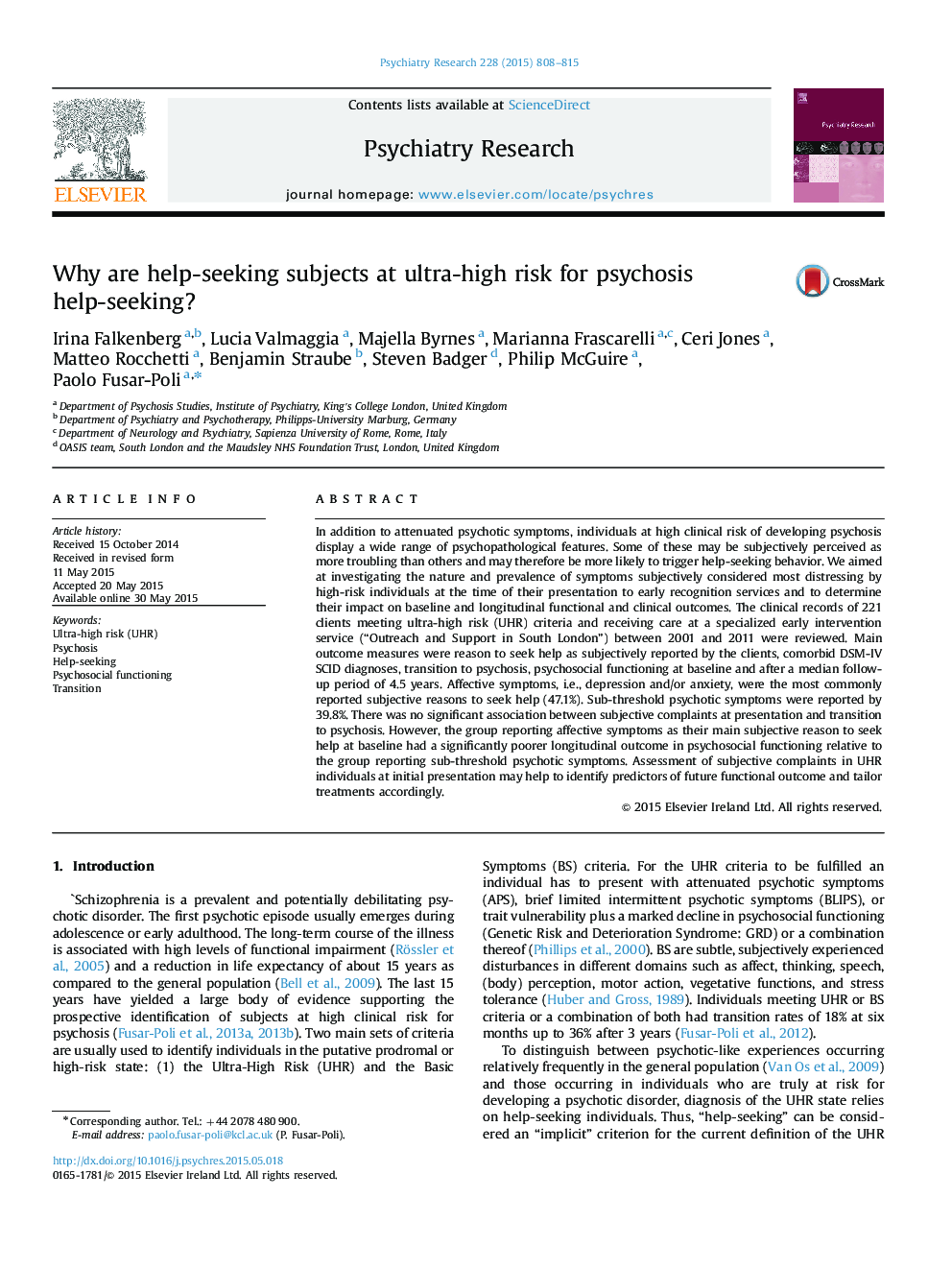| کد مقاله | کد نشریه | سال انتشار | مقاله انگلیسی | نسخه تمام متن |
|---|---|---|---|---|
| 10303746 | 545613 | 2015 | 8 صفحه PDF | دانلود رایگان |
عنوان انگلیسی مقاله ISI
Why are help-seeking subjects at ultra-high risk for psychosis help-seeking?
ترجمه فارسی عنوان
چرا افراد مبتلا به کمردرد در معرض خطر فوق العاده بالا برای کمک به روانپزشکی هستند؟
دانلود مقاله + سفارش ترجمه
دانلود مقاله ISI انگلیسی
رایگان برای ایرانیان
کلمات کلیدی
موضوعات مرتبط
علوم زیستی و بیوفناوری
علم عصب شناسی
روانپزشکی بیولوژیکی
چکیده انگلیسی
In addition to attenuated psychotic symptoms, individuals at high clinical risk of developing psychosis display a wide range of psychopathological features. Some of these may be subjectively perceived as more troubling than others and may therefore be more likely to trigger help-seeking behavior. We aimed at investigating the nature and prevalence of symptoms subjectively considered most distressing by high-risk individuals at the time of their presentation to early recognition services and to determine their impact on baseline and longitudinal functional and clinical outcomes. The clinical records of 221 clients meeting ultra-high risk (UHR) criteria and receiving care at a specialized early intervention service (“Outreach and Support in South London”) between 2001 and 2011 were reviewed. Main outcome measures were reason to seek help as subjectively reported by the clients, comorbid DSM-IV SCID diagnoses, transition to psychosis, psychosocial functioning at baseline and after a median follow-up period of 4.5 years. Affective symptoms, i.e., depression and/or anxiety, were the most commonly reported subjective reasons to seek help (47.1%). Sub-threshold psychotic symptoms were reported by 39.8%. There was no significant association between subjective complaints at presentation and transition to psychosis. However, the group reporting affective symptoms as their main subjective reason to seek help at baseline had a significantly poorer longitudinal outcome in psychosocial functioning relative to the group reporting sub-threshold psychotic symptoms. Assessment of subjective complaints in UHR individuals at initial presentation may help to identify predictors of future functional outcome and tailor treatments accordingly.
ناشر
Database: Elsevier - ScienceDirect (ساینس دایرکت)
Journal: Psychiatry Research - Volume 228, Issue 3, 30 August 2015, Pages 808-815
Journal: Psychiatry Research - Volume 228, Issue 3, 30 August 2015, Pages 808-815
نویسندگان
Irina Falkenberg, Lucia Valmaggia, Majella Byrnes, Marianna Frascarelli, Ceri Jones, Matteo Rocchetti, Benjamin Straube, Steven Badger, Philip McGuire, Paolo Fusar-Poli,
